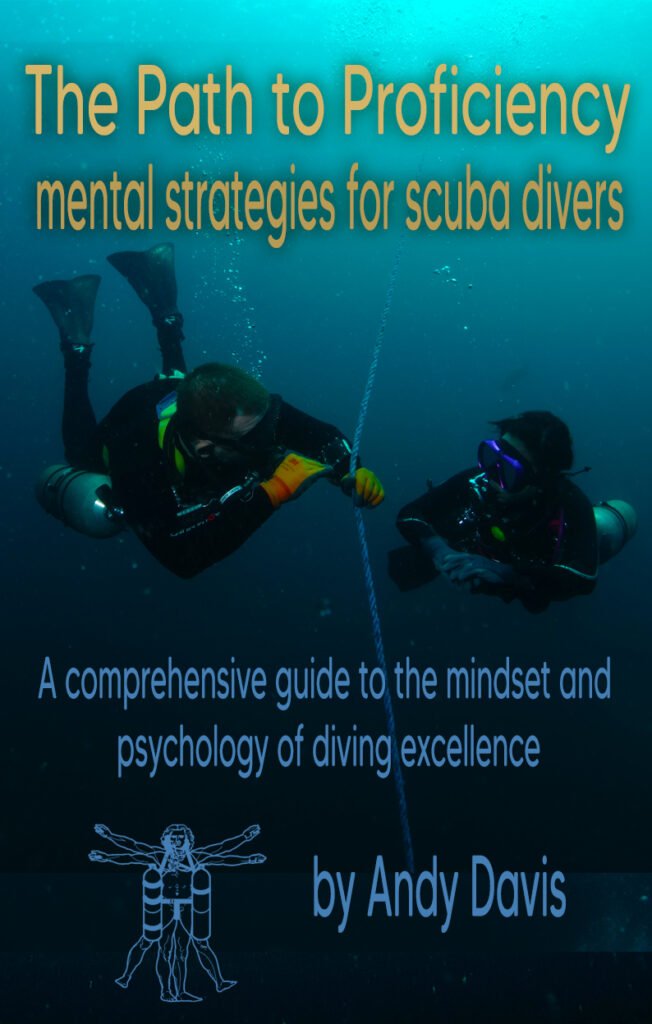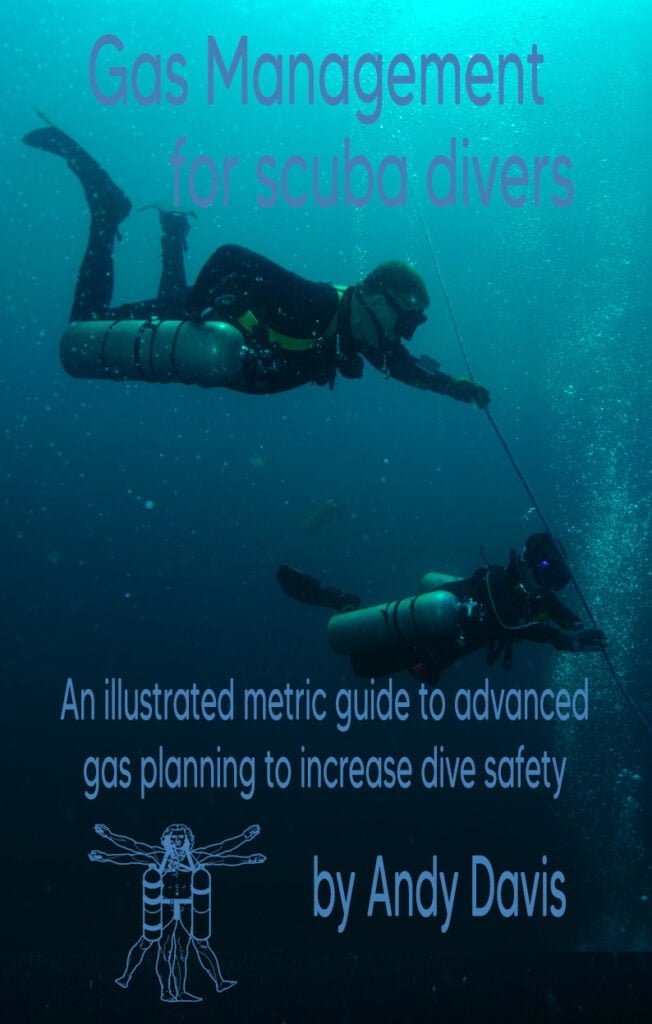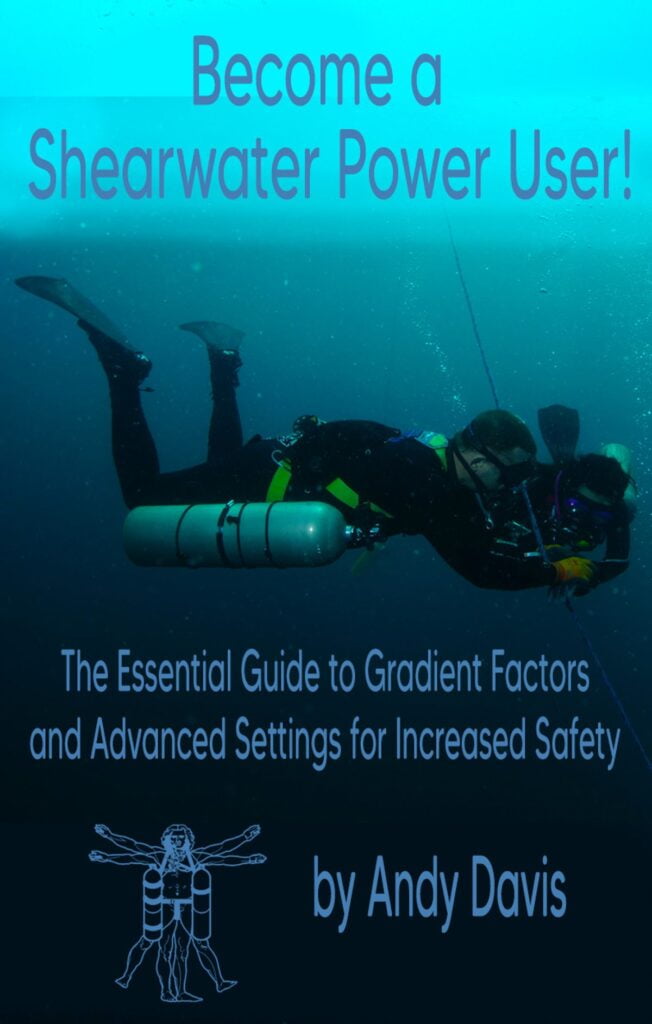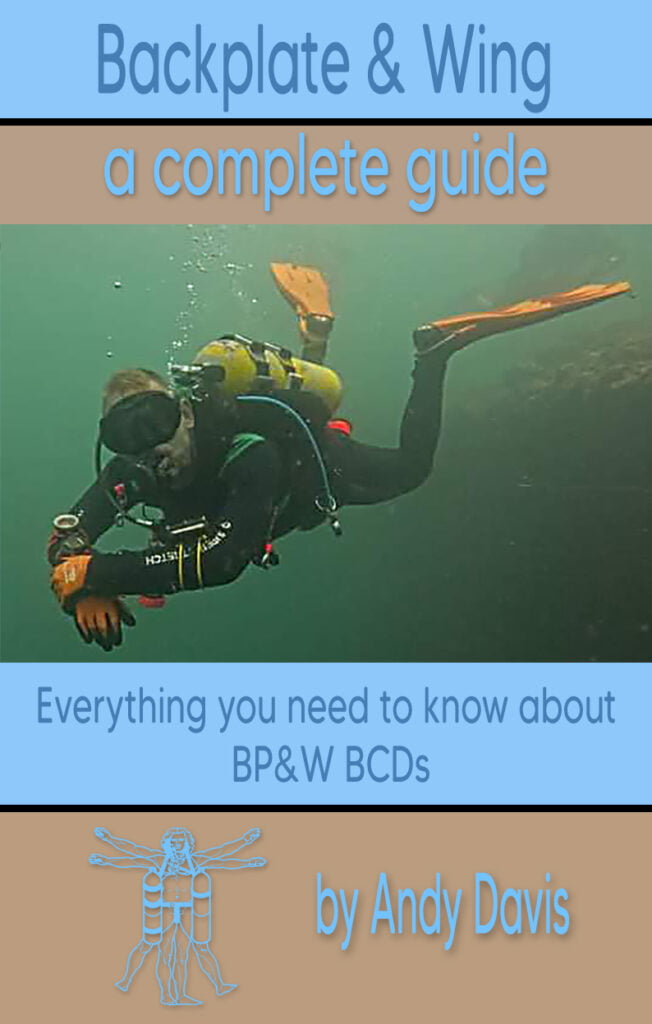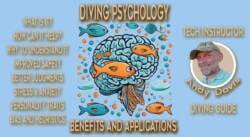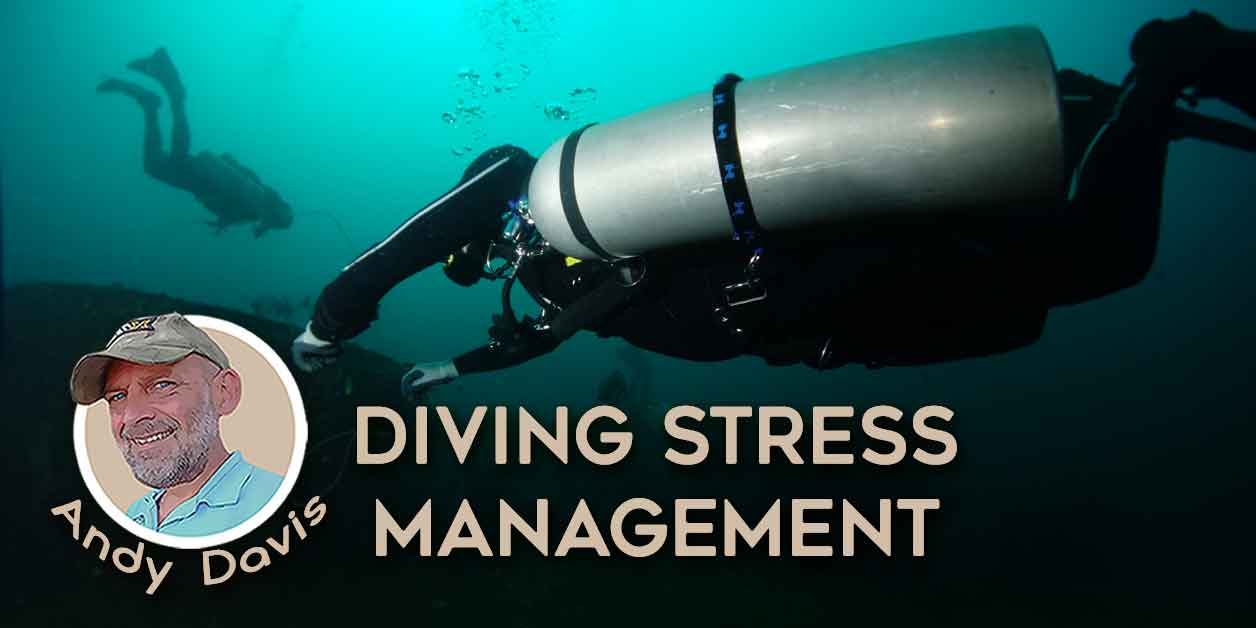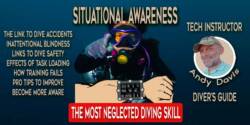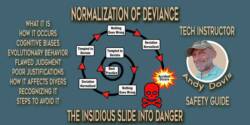10 Core Traits of Highly Competent Divers – Mindset, Attitude and Personality
What truly sets highly competent divers apart from the rest?
Having developed as a diver for over three decades, progressing from an Open Water certification to becoming a Full Trimix and Technical Wreck Instructor, I’ve had the privilege to cross paths with numerous expert divers.
These exceptional individuals stand out not only for their profound diving expertise but also for their expansive knowledge and exceptional mindset.
Delving into their common characteristics reveals a trend in the traits that contribute to their extraordinary competency:
- Attention to detail
- Curiosity
- Adaptability
- Open-mindedness
- Self-control
- Delayed gratification
- Rigor
- Passion
- Self-awareness
- Conscientiousness
In this article, I will explore these ten core traits that distinguish highly competent divers and propel them far beyond the realm of mediocre proficiency. By cultivating these traits, you too can embark on a path toward diving mastery.
Diver Trait #1: Attention To Detail
One of the most prominent indicators of high diving competency is the tendency to keenly observe and apply precise detail in the tasks a diver performs.
This trait extends to how a diver applies protocols, procedures, skills, and diving equipment setup. At its core, attention to detail signifies a person’s inclination toward precision, accuracy, and consistency in task execution.
It is the opposite of being slapdash, unobservant, careless, and easily satisfied with messy or incomplete results.
Specific skills associated with high attention to detail include:
- Active Listening Skills: Vital for accurately absorbing information and instructions.
- Organizational Skills: Efficiently managing resources, tasks, and information.
- Analytical Thinking Skills: Proficiency in dissecting situations and information for insights.
- Time Management Skills: Allocating time effectively for prompt and accurate task execution.
- Observational Skills: Nurturing the ability to perceive nuances in the environment.
- Practical Skills: Demonstrating meticulous care in physical tasks, such as equipment setup, emergency procedures, and gear maintenance.
Attention to detail demands an ability to focus on the task at hand. Highly competent divers become accustomed to ignoring distractions that would diminish the performance of their task.
The skill of detailed visualization, known as mental representation, is also associated with attention to detail and strong indicator of diving competency.
The clarity and detail with which a diver can imagine different facets or scenarios in diving is indicative of their proficiency.
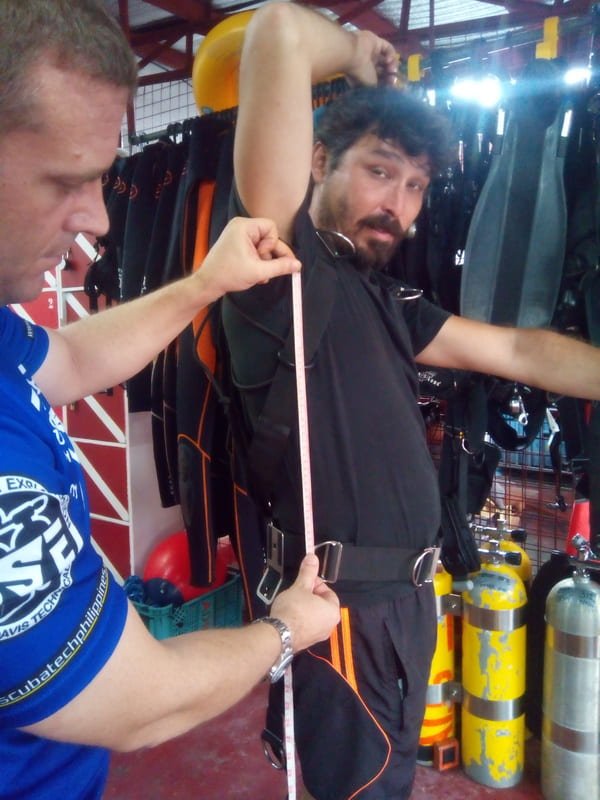
Develop a habitually detail-oriented approach to diving
- Cultivate Keen Observation: Improve attention to detail by honing the ability to keenly observe and apply precise details in all diving tasks, including protocols, procedures, skills, and equipment setup.
- Foster Concentration: Enhance attention to detail by practicing focused concentration during dives, training the mind to ignore distractions that could hinder precision.
- Develop Detailed Visualization: Improve attention to detail by enhancing the skill of detailed visualization, known as mental representation, which indicates diving proficiency and is a strong predictor of competency.
Diver Trait #2: Curiosity
Curiosity fuels the flames of learning, driving individuals to continuously seek knowledge and expand their horizons. Research confirms that a curious child tends to carry this trait into adulthood.
A hallmark of truly adept divers is their insatiable curiosity and perpetual quest for knowledge. Studies have affirmed that a curious child is more likely to retain that inquisitive spirit into adulthood.
This curiosity fuels the acquisition of new concepts, ideas, and skills, transcending the boundaries of the familiar. Expert divers embody this spirit of curiosity, consistently seeking to know more.
Embrace Curiosity
- Ask Thoughtful Questions: Expert divers are known for asking questions that unearth the core of a problem, sparking insightful conversations.
- Research: They exhibit a hunger for knowledge, relentlessly scouring the internet and books to delve into new interests and expand their understanding.
- Diversify Your Understanding: Highly competent divers embrace diverse diving interests and information sources. They aren’t just interested in what they need to know but want to understand as much as they can.
Diver Trait #3: Adaptability
Highly competent divers are characterized by their remarkable adaptability to evolving concepts, ideas, and approaches.
This trait encompasses a receptiveness to new insights, challenging established norms, and a willingness to embrace unfamiliar approaches.
Improving as a diver demands an openness to change, and expert divers thrive in this environment.
Less competent divers succumb to stagnancy and complacency. Their ability to evolve in sync with new developments in diving is a testament to their capacity for continuous growth.
Cultivate Adaptability
- Openness to Change: Competent divers welcome new information and ideas, recognizing that evolution is essential for progress.
- Challenging Preconceptions: They aren’t bound by what already believe, often challenging their existing perceptions and questioning the comfortable status quo that they are in.
- Insightful Questioning: Adaptable divers process new information with a healthy balance of skepticism and lack of prejudice or bias. Novel ideas have to be reasonably validated but are never dismissed out of hand.
Diver Trait #4: Open-Mindedness
Open-mindedness is a cornerstone of diving expertise, transcending the limits of existing knowledge. Divers must resist the urge to assume complete mastery of their specialized activity.
True mastery involves not only listening to others but also cultivating an open mind that can perceive how diverse perspectives apply to different scenarios. This trait encourages humility, fosters learning, and prevents stagnation.
Adopt An Open-Minded Approach
- Listen to Others: Approach conversations with humility, understanding that others’ insights might hold hidden gems.
- Diverse Learning: While maintaining their areas of expertise, they’re unafraid to explore domains beyond their usual focus.
- A Humble Learning Curve: Recognizing that no one knows everything, they navigate the underwater world with a thirst for learning.
Diver Trait #5: Self-Control
Exercising self-control is a fundamental trait shared by highly competent divers. This quality enables them to navigate challenging situations, make positive choices, and progress toward their long-term objectives.
Scientific research aligns with the stoic philosophy that champions self-control as a tool for success and contentment.
Expert divers harness this trait to evaluate options thoughtfully before making decisions, reflecting the wisdom of ancient stoic philosophers.
Between 334 and 262 BCE, Zeno, an influential early Stoic philosopher, highlighted self-mastery as the ultimate conquest, surpassing external forces. Likewise, Marcus Aurelius, the Roman emperor from 121 to 180 AD and a later Stoic philosopher, emphasized the internal locus of power. He noted that recognizing this truth fuels strength and resilience.
Self-control isn’t solely about refraining from damaging impulsive behavior; it’s a foundation of success.
Competent divers exercise self-control to avoid detrimental actions, encourage positive behavior, and progress toward their long-term objectives.
This trait encompasses both emotional regulation and well-thought-out decision-making.
Harness Your Self-Control
- Mindful Decision-Making: Carefully evaluate your choices, considering potential outcomes before taking action.
- Stoic Wisdom: Draw from the philosophy of ancient Stoics, they recognize the power of self-control in achieving happiness.
- Resist Internal Pressure: In the face of choices, use self-control to do what you know is correct, rather than what is easiest or most convenient.
Purchase my exclusive ebook!
A comprehensive guide to the mindset and psychology of diving excellence.
$20 Printable PDF Format, 298 pages
Diver Trait #6: Delayed Gratification
The ability to postpone immediate gratification is a distinguishing feature of high-performance divers. This skill transcends the allure of instant rewards in favor of enduring, valuable outcomes.
Psychological studies have indicated that this trait reveals a higher level of cognitive intelligence, as it requires patience and the ability to prioritize long-term value over short-lived pleasure.
In a 2009 psychological study conducted at Yale University, subjects were given IQ tests and then offered a choice to take a smaller reward immediately or wait for a larger reward later. The latter group tended to be more intelligent and successful later in life.
Highly competent divers apply this principle to their diving activities, opting for long-term significance over fleeting pleasures.
Practice Delaying Gratification
- Resisting Impulse: Exercise restraint, resisting the temptation to rush into decisions or actions.
- Prioritize Longevity: Acknowledge that true value often lies in pursuing more significant rewards in the future.
- Choose Best, Not Easiest: Recognize that satisfying an immediate dopamine rush will not achieve long-term satisfaction from attaining excellence.
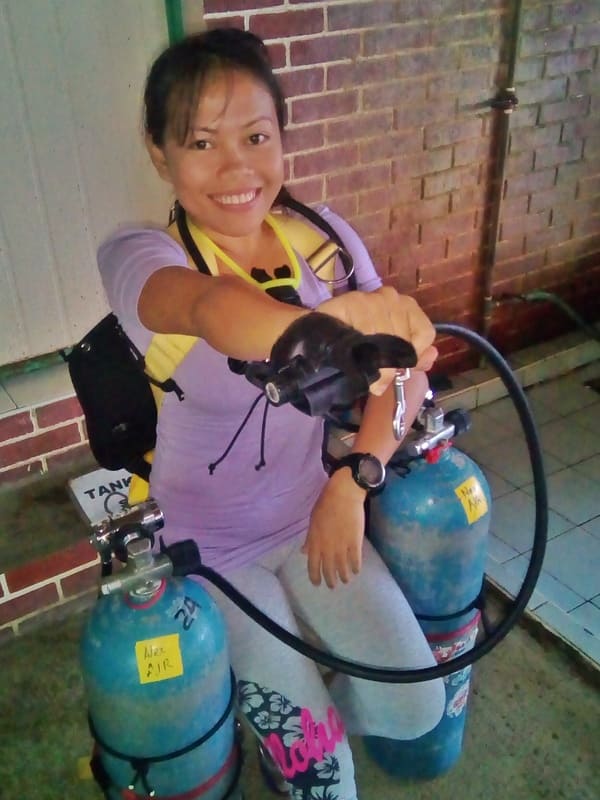
Diver Trait #7: Rigor
Proficient divers base their opinions on a foundation of scientific, factual, and specialized knowledge.
While diving experience is often cited, substantiating opinions with reasoned, fact-based arguments is crucial. This embodies rigor, a trait that shapes divers’ approaches.
Similarly, rigor is a trait that defines how a diver approaches their diving.
A rigorous diver invests time, energy, and resources into preparing for more complex dives. They set practical limits, enhancing capabilities as a foundation for venturing beyond comfort zones.
This involves distinguishing between dives specifically intended to challenge their limits and routine dives that deserve a heightened risk tolerance.
Typically, highly competent divers opt for dives well within their limits when not intentionally pushing boundaries. Operating at around 85% of peak capacity ensures a surplus to manage unforeseen issues.
In contrast, normalized diving at, or beyond, your limits leaves zero reserve for unexpected problems.
Incorporating Rigor
- Evidence-Based Decisions: Learn to rely on objective facts and information rather than subjective assumptions when making judgments.
- Thorough Preparation: Invest time and resources in comprehensive dive preparation, leaving no room for oversight.
- Balanced Risk Management: Set realistic limits, pushing boundaries intentionally while maintaining a cushion for unexpected issues.
Diver Trait #8: Passion
Passion propels divers beyond mere enjoyment; it fuels a relentless pursuit of mastery. True passion and dedication involve personal investment.
Passion and dedication aren’t measured by how much one enjoys being underwater; that is simple gratification, not dedication.
Expert divers will have made sacrifices to get where they are; time, money, hard work, and accepting inconvenience:
- Taking the harder path, not the easy path.
- Pursuing long-term goals, not short-term conveniences or instant gratification.
- They don’t just go diving for fun but rather allocate regular time for deliberate practice, study, and development.
Become Passionate
- Invest Effort: Don’t merely dive for fun; allocate regular time for deliberate practice and improving knowledge.
- Long-Term Focus: Development as a diver isn’t punctuated by short-lived gratification but is marked by consistent, purposeful growth.
- Embracing Challenges: Willingly embrace difficulties, seeing them as stepping stones on the path to mastery.
Diver Trait #9: Self-Awareness
Self-awareness, the profound understanding of one’s values, emotions, strengths, and weaknesses, forms a bedrock of diving expertise. It aids in identifying skill gaps, intuitive decision-making, and stress management.
By acknowledging limitations, divers embark on a journey of continuous improvement, seeking feedback and leveraging self-assessment tools to refine their expertise.
Expert divers leverage self-awareness to identify opportunities for brutal self-assessment. They push back against the natural instincts for comforting denial and ego-boosting self-delusion.
Enhance Your Self-Awareness
- Evaluating Your Strengths and Weaknesses: Self-awareness empowers you to honestly evaluate yourself. Aim to realistically challenge what you believe are strengths, and be humble in accepting your weaknesses.
- Healthy Introspection: Self-awareness cultivates introspection, enabling recognition of strengths, weaknesses, and blind spots. It acts as a shield against cognitive biases and emotional reactions that could distort judgment.
- Awareness of Fallibility: Self-aware divers readily acknowledge that they are capable of making mistakes or being wrong. They plan and conduct dives, and shape their training, with that assumption in mind.
Diver Trait #10: Conscientiousness
Conscientiousness is a fundamental personality trait, one of the Big Five, reflecting the tendency to be responsible, organized, and hard-working.
Whilst innate strength in conscientiousness is genetic, it can be cultivated habitually through deliberate effort.
Conscientious divers;
- Are diligent, and efficient
- Take tasks seriously
- Often demonstrating high levels of organization
- Prioritize their obligations to others
- Strive to perform well in various aspects of life
High conscientiousness is associated with behaviors such as;
- Punctuality
- Attention to detail
- Strong work ethic
This trait makes divers more likely to;
- Adhere to best practices
- Follow learned protocols
- Apply prudent safety recommendations
- Be dependable team divers
- Excel in diving activities that demand precision and dedication
Being high in conscientiousness also reduces the tendency towards procrastination and short-cutting.
It is an invaluable trait in avoiding the ‘normalization of deviance‘; a predictable human fallibility that can lead to catastrophic accidents.
The ability to exert impulse control, be goal-directed, follow plans, able to delay gratification, and follow established norms and rules, does not preclude being innovative, adventurous, or pioneering.
It simply means that the individual operates safely within a diligently structured framework of measured caution, sound procedures, and prudently reasoned judgments.
A highly competent diver is able to take calculated risks, but they are simultaneously averse to taking unnecessary or avoidable risks.
How To Be More Conscientious
- Diligence and Efficiency: Showcase diligence, efficiency, and seriousness in their tasks, reflecting a high level of organizational skills.
- Prioritize Obligations: Prioritize their commitments to others and strive for excellence in various life domains, reflecting a strong work ethic.
- Adhere to Best Practices: High conscientiousness drives divers to adhere to best practices, protocols, and safety recommendations. You will emerge as a dependable team player excelling in precision-demanding diving activities.
- Mitigate Risks and Normalization of Deviance: Conscientiousness counteracts procrastination and shortcuts, crucial for averting the ‘normalization of deviance,’ a human vulnerability leading to severe accidents. While remaining innovative and adventurous, conscientious divers navigate within a structured framework of measured caution and prudent judgments.
Strive To Nurture These Traits Of Highly Competent Divers
In the diving community, the distinction between ordinary and exceptional divers lies in embodying these ten core traits.
To become a highly competent diver you must strive to develop:
- Attention to detail
- Curiosity
- Adaptability
- Open-mindedness
- Self-control
- Delayed gratification
- Rigor
- Passion
- Self-awareness
- Conscientiousness
These traits interweave to create a tapestry of expertise that extends beyond technical proficiency to encompass a holistic approach to diving.
By nurturing these traits, you can embark on a transformative journey toward becoming a diver who not only explores the depths but also truly masters them.
Books That Help Highly Competent Divers
About The Author

Andy Davis is a RAID, PADI TecRec, ANDI, BSAC, and SSI-qualified independent technical diving instructor who specializes in teaching sidemount, trimix, and advanced wreck diving courses.
Currently residing in Subic Bay, Philippines; he has amassed more than 10,000 open-circuit and CCR dives over three decades of challenging diving across the globe.
Andy has published numerous diving magazine articles and designed advanced certification courses for several dive training agencies, He regularly tests and reviews new dive gear for scuba equipment manufacturers. Andy is currently writing a series of advanced diving books and creating a range of tech diving clothing and accessories.
Prior to becoming a professional technical diving educator in 2006, Andy was a commissioned officer in the Royal Air Force and has served in Iraq, Afghanistan, Belize, and Cyprus.
In 2023, Andy was named in the “Who’s Who of Sidemount” list by GUE InDepth Magazine.
Purchase my exclusive diving ebooks!
Originally posted 2023-08-26 16:53:15.

